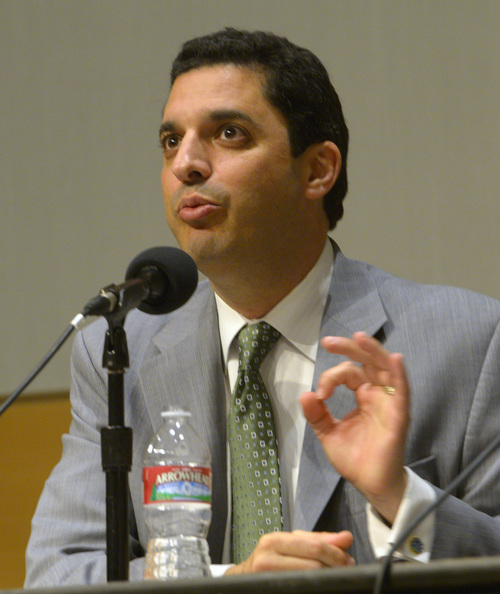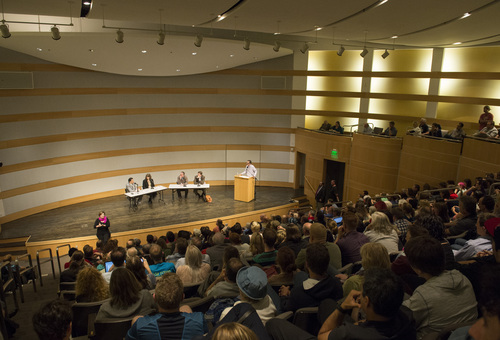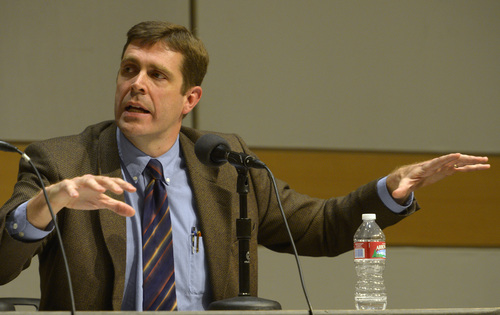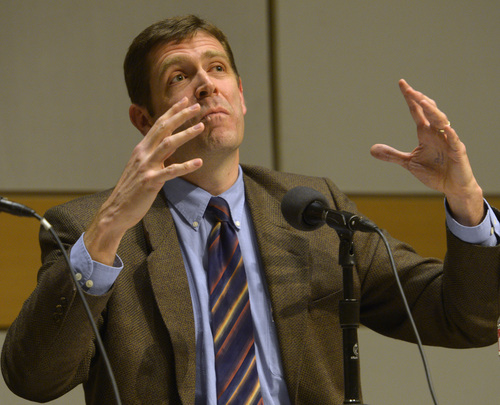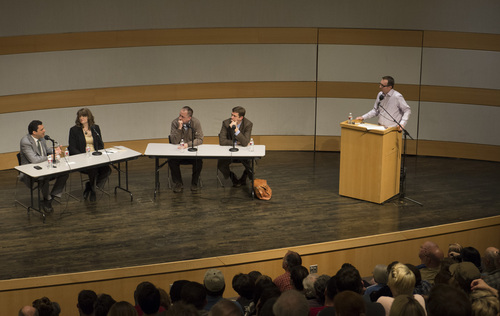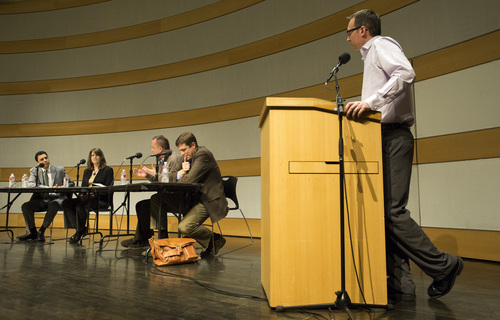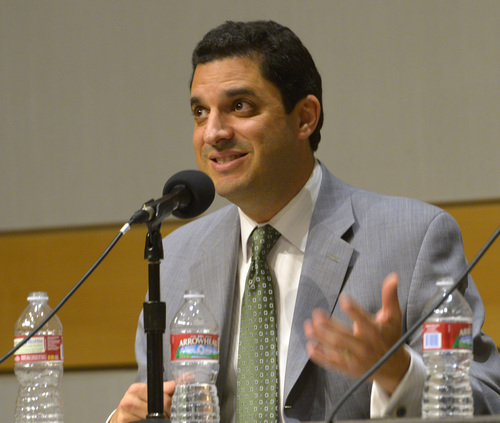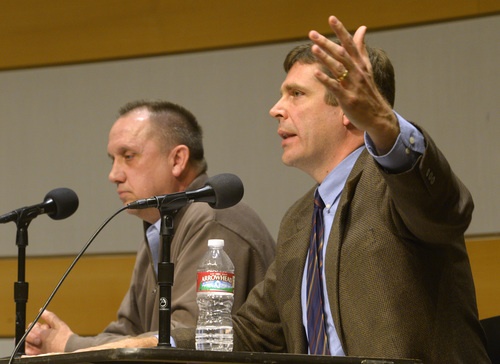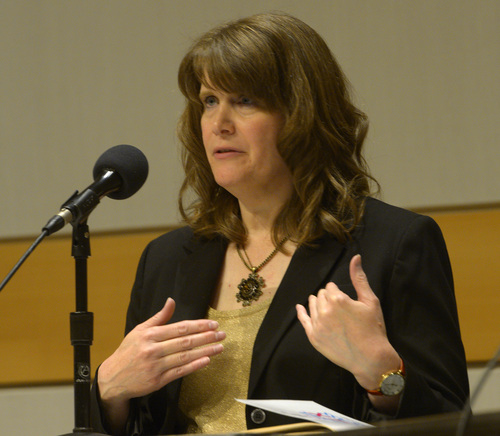This is an archived article that was published on sltrib.com in 2014, and information in the article may be outdated. It is provided only for personal research purposes and may not be reprinted.
Is a religion like Mormonism fundamentally a force for good, or a "poison" that "deserves to die"?
Those were the two opposing views presented Wednesday night during a panel discussion at the downtown Salt Lake City Main Library. On one side, American Atheists President David Silverman and author, ex-Mormon and ex-polygamist Joanne Hanks argued that religion basically brainwashes its members. Silverman, in particular, came out swinging, repeatedly describing the faithful as "victims" of their respective religions.
On the other side, Brigham Young University religion professors J.B. Haws and Richard Holzapfel argued in favor of religion. Their point: that despite failings of individual members, Mormonism is ultimately a force for good.
The discussion — which moderator Paul Reeve said was "not a debate" — focused most intensely on the idea of inclusiveness. Silverman argued that religion generally, and Mormonism in particular, produces exclusive groups that shun outsiders. As evidence, he said his organization was unable to purchase billboard space in Utah and that many Mormon youths are expelled from their families for coming out as atheists or for being gay.
"Religion is bad, religion is a poison, religion does not deserve to live," Silverman added. He quickly clarified that he was talking about institutions, not religious people individually.
The filled-to-capacity crowd clearly agreed with Silverman, repeatedly clapping during his comments and occasionally cheering.
But the BYU professors resisted Silverman's characterization. While they acknowledged that shunning does happen, they argued that it's not part of the religion itself.
"It's not a Mormon ideal to shun," Holzapfel said.
As the discussion continued, the panelists seemed to be grasping at what exactly religion should be held accountable for. Silverman and Hanks — who recounted her own traumatic experiences in a Manti-based polygamous sect — implied that religion was responsible for cultural behaviors of its adherents. If members of a religious group are especially exclusionary, the two atheists were saying, the religion itself is consequently problematic.
Haws and Holzapfel defined the terms more narrowly; their point was that the actions of religious people are not necessarily synonymous with "religion."
That conflict over the fundamental nature of religions was, unsurprisingly, not resolved during the discussion. However, Silverman and Hanks continued asking for explanations of specific behaviors within Mormonism such as baptism for the dead — a Mormon practice that involves baptism living members in the name of dead nonmembers. Silverman called the practice "appalling" to the families of the dead people. Later, Hanks said that during her time working for the LDS Church she bought a $200,000 chandelier for a temple. She and Silverman argued that such expenses represented misplaced priorities for a religion.
The BYU professors countered that their church gives considerable amounts of money to charity. Holzapfel also said that he likes to donate money to Mormon charities because those charities have no overhead costs. The professors also acknowledged the issues raised by baptism for the dead, but said that for people who recently died the church has to get permission to perform the ceremony and examples otherwise were due to rogue members acting on their own.
While much of the discussion had the Mormons explaining their religion and the atheists asking questions, the purpose of the event was ostensibly to dispel stereotypes on both sides of the issue. To that end, Silverman said he hoped to convince people that atheists are not mean or immoral people.
Toward the end of the discussion, Mormon history came up after several audience members submitted questions critical of the way the LDS Church deals with the topic. Both BYU professors essentially seemed to concede the point, at least as far as the past goes, but said their church has recently begun a new chapter of openness and honesty.
The tone of the evening was mostly cordial, though few on either side of the aisle were likely converted.
Twitter: @jimmycdii


